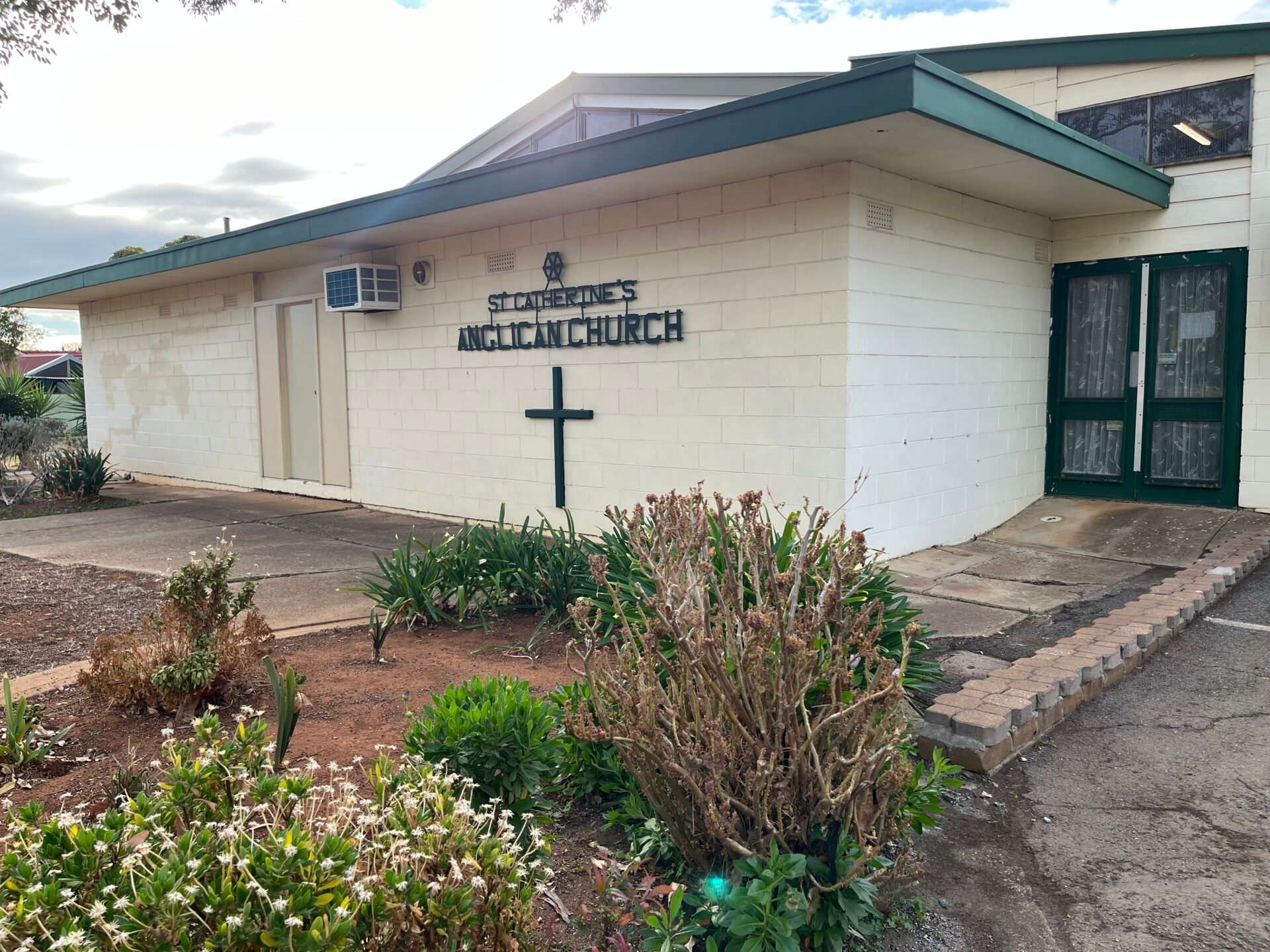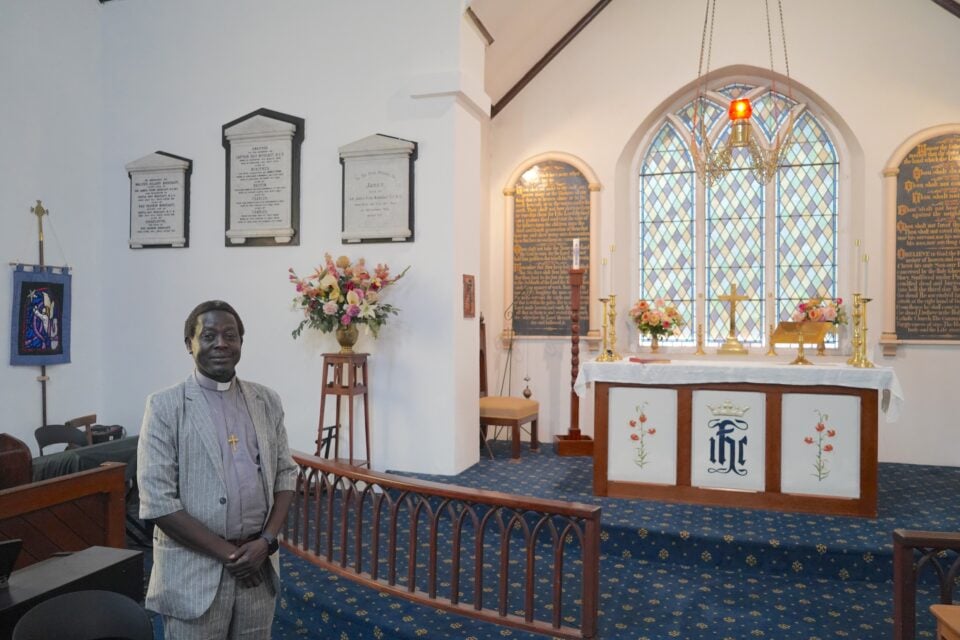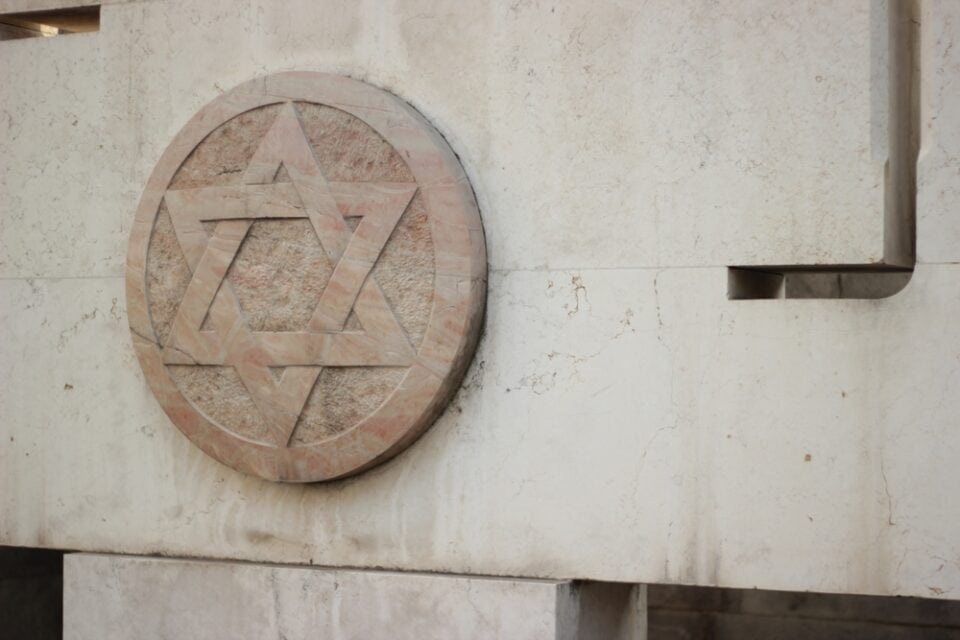St Catherine’s Church, Elizabeth, operates an op-shop and helps volunteers gain employable skills
By Benjamin Opiyo
Elizabeth Downs, a northern suburb in Adelaide has been described as one of the most socially disadvantaged suburbs—rough, rowdy, and a host of hopeless misery.
But while there are some signs of tough times, there are also plenty of bubbly children, lively people, and well-kept homes.
St Catherine’s Anglican church-run op-shop, next to a shopping centre and a pub, stands out as a hive of activity. Middle-aged men, all volunteers, walk in and out of the church hall while women huddle around a table displaying earrings and necklaces.
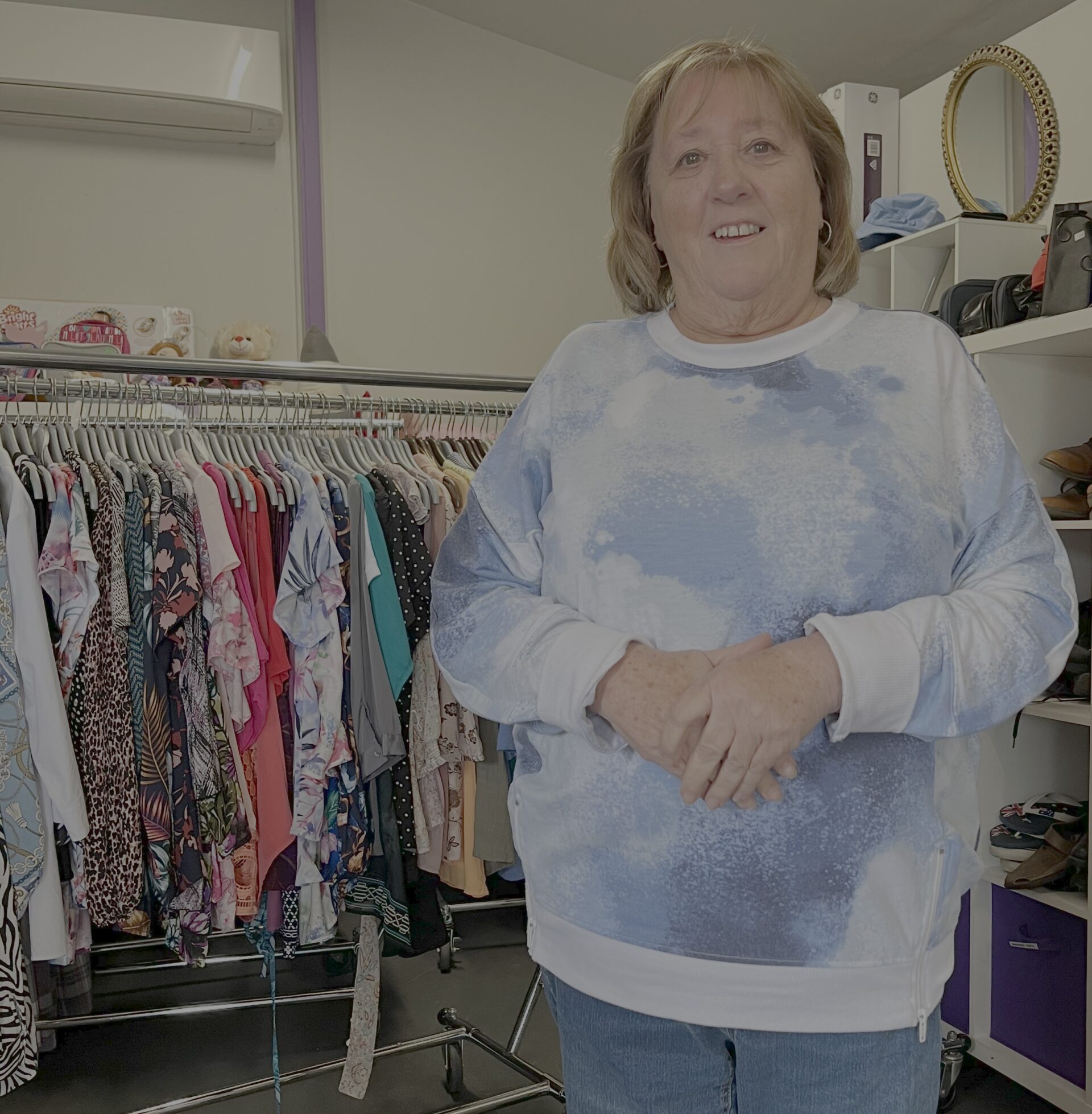
For over 20 years, the church has operated the opportunity shop, selling secondhand wares at a cheaper cost for charitable causes. The program rose from a need.
“There were a lot of families in desperate need of cheap clothing because of unemployment,” Joyce Little, the shop’s operations lead, says. What was a bottle-waste shed turned into a thrift shop in a Sunday school room, and is today a stand-alone shop.
Joyce, 68, says the church, “engages with people who are in desperate need.”
The church’s op-shop and participation in the Australian government’s Work for the Dole program recognise individual and community needs in the suburb. It is a vital service. “We have had a huge impact because they know our doors are open,” Joyce says. An inclusive approach sends a message that everyone is equal and deserves a comfortable life.

Brenton Hall, 52, a volunteer, does not live a comfortable life, but the volunteer work increases his self-worth.
“It gets me out of the house, and once I start doing something, I feel good about doing something.” he says.
Brenton participates in the Work for the Dole program, which provides opportunities to contribute to the community and learn skills transferable to employment.
“I have learnt people skills, though I am a people person anyway,” he says.
Joyce grapples with the question of why churches are compelled to act.
“Because we have all come from different walks of life, and had our share of struggles,” she says, her voice breaking, “So we can relate to those who struggle. We can get a bit annoyed at injustices.”
The compassionate spirit flows through several programs held at the church in conjunction with Anglicare, including “‘”banter and bobbins” arts and craft social group, a cooking group, and other Anglicare SA-run activities.
The Rev’d Dr Cathy Thomson, the parish priest, stresses the integration of pastoral care and community support at the church and across the Diocese of Adelaide.
“The place is always teeming with people from different groups and agencies, and we meet them all with equanimity.”
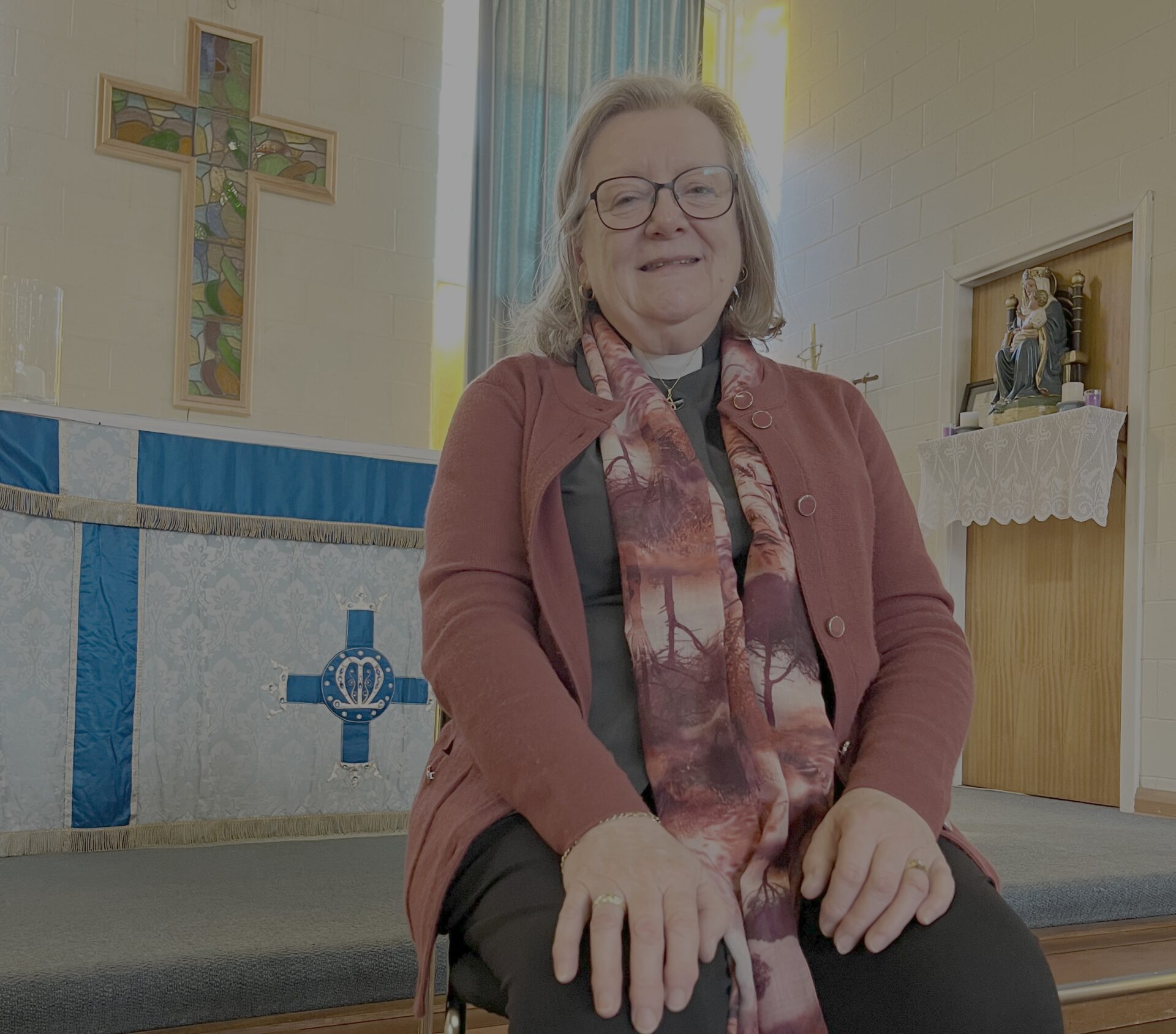
Dr Thomson describes the church as a microcosm of society, where people of privilege and those who lack are welcomed equally with warmth and respect.
“Love and acceptance are important to people who reside in this suburb because they haven’t had easy lives and often think poorly of themselves,” she says
She reflects on the Church’s duty to society by acknowledging that churches have different methods of expressing God’s love depending on their capacities. She notes that churches have constraints, too.
“Churches have become small communities, and some members are senior adults. I only work one day a week, and some priests in the Anglican church work as locum priests in churches that cannot afford a full-time priest.”
She appreciates the Work for the Dole volunteers who fill the human resources gap at St Catherine’s church.
At a time when more than 3 million Australians live below the poverty line, and the top 10% of income earners hold 57% of wealth, Dr Thomson is coy about urging well-off people to support the needy.
“I think a lot of well-to-do people would still be conscious of the needs of other people and places. It is up to them to face that challenge and respond,” she says.
